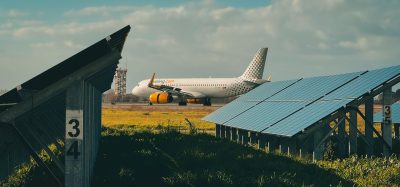COVID-19 has the ability to reset aviation to a more sustainable model
- Like
- Digg
- Del
- Tumblr
- VKontakte
- Buffer
- Love This
- Odnoklassniki
- Meneame
- Blogger
- Amazon
- Yahoo Mail
- Gmail
- AOL
- Newsvine
- HackerNews
- Evernote
- MySpace
- Mail.ru
- Viadeo
- Line
- Comments
- Yummly
- SMS
- Viber
- Telegram
- Subscribe
- Skype
- Facebook Messenger
- Kakao
- LiveJournal
- Yammer
- Edgar
- Fintel
- Mix
- Instapaper
- Copy Link
Posted: 20 April 2020 | International Airport Review | No comments yet
Aviation industry experts outlined that COVID-19 could provide a unique opportunity for the industry to reset to a more sustainable model that meets the demands of the climate emergency.


The impact of the COVID-19 pandemic on the aviation sector has been, and will continue to be, unprecedented in its scale and scope, but it can also provide a unique opportunity for the industry to reset to a more sustainable model that meets the demands of the climate emergency.
The call for a sustainability reset emerged from a webinar of industry experts, hosted by Resilience First, looking at the future of aviation in the light of the COVID-19 pandemic.
CEO of the ADS Group, Paul Everitt, said: “The set of circumstances we face today are unlike any we have faced before. The impact of COVID-19 in 2020 could drive industry revenues down to 2005 levels, when the global aircraft fleet was 30 per cent smaller. What we are now anticipating is a direct impact that is much longer than six months because of the difficulty in exiting the lockdown and reopening borders.”
Everitt continued: “We cannot forget that combating climate change will remain a high priority for both the UK and international governments. The UK aviation industry is committed to achieving the net-zero carbon emissions target that the government has signed into law. Ahead of the current crisis we had a very clear strategy, continuing to improve our existing products, speeding and introducing more sustainable aviation fuels and investing in bringing forward the step-change technologies which will allow us to really get to grips with the 2050 target.”
Similarly, David Huttner, Commercial Aviation lead for PA Consulting, said: “COVID-19 is having an unprecedented impact on the aviation industry. Countries that cover 98 per cent of commercial air passenger revenues have restricted travel and the in-service fleet now represents just over one third of the global inventory of aircraft. We believe there has been a reset in the industry and the total numbers will be lower for some time, with sustained capacity reductions of at least 10 or 20 per cent.”
Huttner added: “Significant effort is being made to use a range of emergency measures to reduce costs and improve efficiency permanently as airlines seek to exit from the crisis. Not all airlines will make it through the months ahead, with significant failures due to administration, liquidation and consolidation likely to occur. Corporate travel budgets are likely to be cut as chief financial officers try to preserve cash and retain liquidity. Airlines may need to re-evaluate their business models and recognise the reduction in demand due to both cost and new work practices.”
Robert Hall, Executive Director of Resilience First, emphasised: “The COVID-19 pandemic has reinforced the need for resilience at all levels of society. The response has also set into motion some radical thinking on how we will emerge from the crisis in any exit strategy and what will be the shape of many businesses in the medium to long term. Aviation is an industry which has been brought to its knees, or grounded, by the sudden cessation of air travel.”
Hall continued: “The aviation industry is now facing some major decisions about the way forward. The current crisis – with airline operating levels slashed in some cases to almost zero and some airports closed – does present the entire industry with an opportunity to rethink its operating model and make sure that it is investing in technologies that can enable it to meet emissions targets and create a sustainable future for itself. Our recent major report into the resilience of UK airports found that the agility of airports to adapt to both long-term strategic changes and short-term operational shocks is critical in sustaining their competitive advantage and business prosperity. The COVID-19 lockdown presents both a massive short-term shock and, most likely, unprecedented long-term strategic change.”
Related topics
Airport crisis management, COVID-19, Emissions, Sustainability, Sustainable development


















